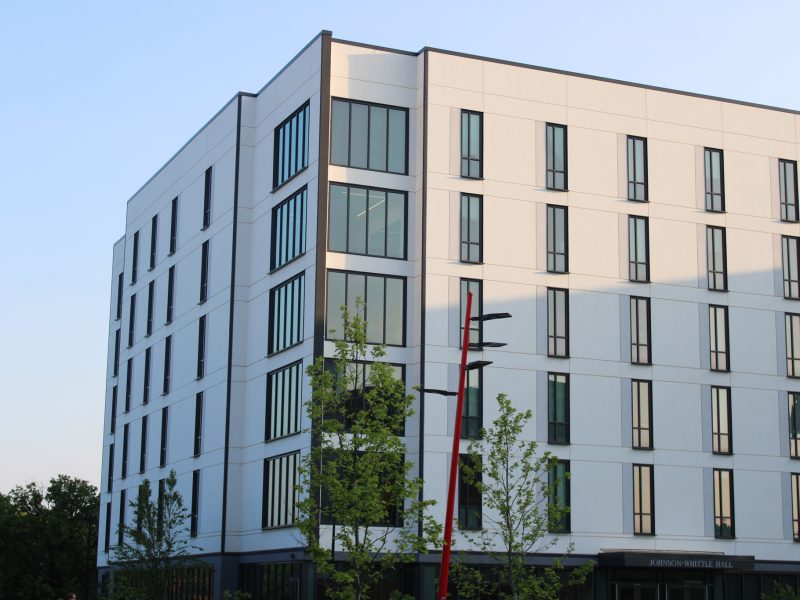Annie E. Clark stood on stage in the University of Maryland’s Hoff Theater and looked out into a crowd of about 150 students.
Statistically, she said, there was just no way that she and fellow lecturer Andrea Pino were the only sexual assault survivors in the room.
Clark and Pino, co-founders of the advocacy group End Rape on Campus, discussed sexual violence on college campuses Tuesday night, saying they wanted to leave students empowered to create change.
“You don’t have to be like us to be an activist; you don’t have to talk about it every day,” Pino said. “Everyone can play a part in ending violence and oppression by resisting rape culture, supporting survivors and challenging our institutions.”
[Read more: UMD officials file motion to dismiss complaint in $5 million sexual assault lawsuit]
The two women, who have become national figures in the fight against campus sexual violence after their experiences at the University of North Carolina at Chapel Hill, talked about the many ways sexual assault hurts students, while urging audience members to stand up against the issue each day.
Many students develop depression and post-traumatic stress disorder after an assault, they said, citing statistics that show almost 31 percent of survivors suffer academically, and nearly 22 percent consider leaving school.
“How many people have dropped out of school, who are not sitting next to you in this lecture tonight, because of their experience?” Clark said.
The women said sexual assault is often framed as happening to a white, cisgender women. But they pushed students to remember that it is women of color and members of the LGBTQ community who are most at risk.
The Justice Department found in 2006 that about 40 percent of black women report “coercive contact of a sexual nature” by the time they’re 18, and half of transgender people report being sexually assaulted in their lifetime, Clark and Pino said.
“That number is unfathomable,” Clark said. “Yet this is not the narrative you hear in the media.”
Clark and Pino discussed the various federal laws that protect sexual assault survivors, zeroing in on Title IX. The two joined with other UNC students and alumni in filing a complaint against the university in January 2013 under the federal anti-discrimination law, helping to pave the way for hundreds of others to take similar legal action.
“The movement started because young people came forward and learned their civil rights,” Pino said.
This university is one of more than 200 under investigation by the U.S. Education Department’s Office for Civil Rights for how it has handled sexual violence issues.
“The University recently learned of an individual complaint prompting a review by the Education Department’s Office for Civil Rights on possible Title IX violations,” university spokesman Brian Ullmann wrote in a January statement. “We plan to fully comply and assist in the review process.”
Clark and Pino’s talk was what “this campus really needed,” said junior kinesiology major Cairan George.
“There’s a lot of stigma here,” George said. “We need to change the way the topic is discussed.”
Alanna DeLeon, the president of this university’s Preventing Sexual Assault organization, said she felt empowered after listening to the lecture, which focused on “everyday activism.” PSA has been pushing this university to place more importance on combating sexual violence on the campus.
“Activism is hard, but it’s supposed to be,” said DeLeon, a senior community health major. “We’re doing this for a reason — there’s still so much to do, but at the same time, we’ve done so much.”
Student Entertainment Events, which sponsored Tuesday’s talk, also held a screening of The Hunting Ground, a documentary about campus sexual assault and universities’ responses that features Clark and Pino, Monday night.
Michal Antonov, SEE’s Lectures Director, said she became determined to help spread the message after watching the documentary a year ago.
“I don’t think a lot of people know where they can turn,” said Antonov, a sophomore communications and government and politics major. “Having these survivors on stage — just them saying, ‘We believe you’ — I think that’s really important.”


